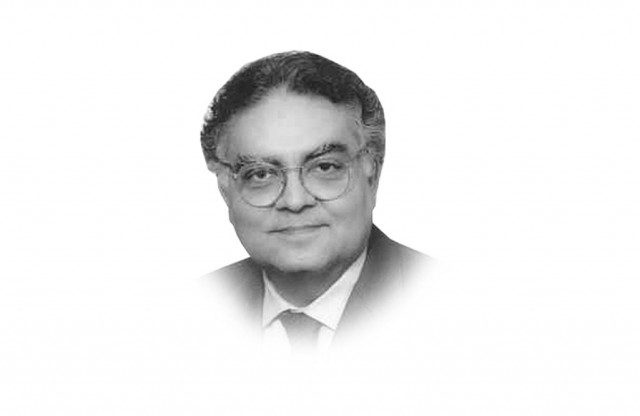Violence and democracy
Resisting violence is a battle for the human mind, involves defeating the appeal on which the violent group relies.

Violence and democracy
Kamal Hossain in a recent paper has argued that violence is often a mode of contention for political and economic power, whether at the level of city gangs or an excluded social group competing for resources, or communities asserting linguistic or regional nationalism. One can also argue that violence by deprived sections of society in various parts of Pakistan such as Balochistan, Fata and urban Sindh originates in the sense of exclusion from the political and economic growth processes. In some cases, as American sociologist Barrington Moore Jr has argued, violence expresses an outrage at the perceived violation of norms held dear by a particular community.
Individual members of the groups that engage in violence for political ends assert a particular ethnic, linguistic, regional or religious identity. Amartya Sen has argued that individuals normally have multiple identities: one can, for example, be a member of a club, a Lahori, a Muslim, a Punjabi, a Pakistani and a South Asian all at the same time. Sen does not analyse the psychological process through which multiple identities are displaced by singular and exclusive identities. However, one can argue that the process of constituting such an exclusive identity is fuelled by narratives of grievances against the state and its political, economic and social policies. One may suggest that a narrow identity contains an emotional charge, which is used to generate hatred and anger against the other.
The growth of interpersonal and inter-regional economic disparities within the nation state provides the material basis for the emergence of sectarian, ethnic, regional or linguistic identities. An equally important factor in triggering the suspension of multiple identities and the emergence of violent exclusive identities is the denial by the state of the social, linguistic, cultural or religious identity of a particular community. The construction of an exclusive identity is, therefore, a response of an aggrieved community. This enables the mobilisation of a combative social group that aims to overcome the deprivation of its members through violent forms of negotiation with the dominant elite and the state.
The report of the Commonwealth Commission on Respect and Understanding argues that the battle against terrorism and group violence must go beyond policing and military operations, important though they may be. Resisting violence is a battle for the human mind, which involves defeating the appeal on which the violent group relies for recruitment.
The challenge of achieving a modicum of peace and building a sustainable democracy requires the recognition by the state of the pluralist character of Pakistan’s society and a respect for the diversity of its language, culture and belief systems. This diversity is not a threat to the integrity of Pakistan but is precisely the source of its creativity and dynamic unity. The pursuit of peace and national integrity requires the building of inclusive institutional structures that enable the participation of the deprived sections of society in the political process, the formulation of socio-economic policies and the allocation of public resources.
Published in The Express Tribune, September 5th, 2011.













COMMENTS
Comments are moderated and generally will be posted if they are on-topic and not abusive.
For more information, please see our Comments FAQ